About us
Clean Energy for a Fairer and Healthier World.
We’re New Zealand’s largest renewable energy generator and a major retailer.
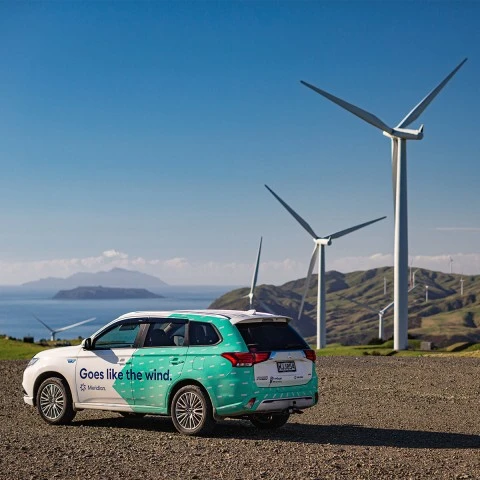
We’re New Zealand’s largest renewable energy generator and a major retailer.
Meridian Energy is one of Aotearoa New Zealand’s largest listed companies. We sell more electricity to customers, large and small, than any other electricity company and we generate around a third of the country’s electricity needs – all from renewable sources.
We’re also building new projects to stay ahead of the growing demand for electricity. This will help customers to reduce their emissions and ensure New Zealand has the advantages of a green economy, fuelled by renewable energy.
As a retailer we sell electricity to homes and businesses through two brands – Meridian and Powershop – and we’re committed to providing even greater value to them through new and more flexible energy solutions.
Our purpose is Clean Energy for a Fairer and Healthier World. Generating affordable, reliable, renewable energy is vital to a sustainable future, and Meridian has the scale and resources to help secure a clean energy future that helps people thrive and leaves our planet in better shape for future generations.
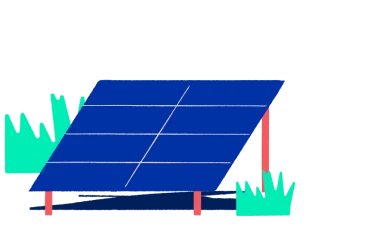
We generate around 30% of New Zealand’s electricity – and all from 100% renewable sources. Meridian owns and operates seven hydro power stations, eight wind farms and New Zealand’s first grid-scale battery. We also have power purchase agreements with a number of customers that see us own and operate commercial-scale solar on customer properties and sell the generation back to the customers.
Sustainability defines who we are and comes to life in all parts of our business. We’re about doing the right things today so our planet and all it sustains can survive and thrive in the future. This means acting responsibly for our planet, making it easy for our customers to reduce their emissions, supporting local communities to thrive and striving to be a more sustainable company.
Meridian is one of New Zealand’s largest retailers of electricity. We supply power to more than 350,000 residential and business customers across the country through our Meridian and Powershop brands.
We’re committed to building two-way relationships with our customers – helping them achieve the benefits of decarbonisation and rewarding them for playing a role in making the country’s electricity system more flexible.
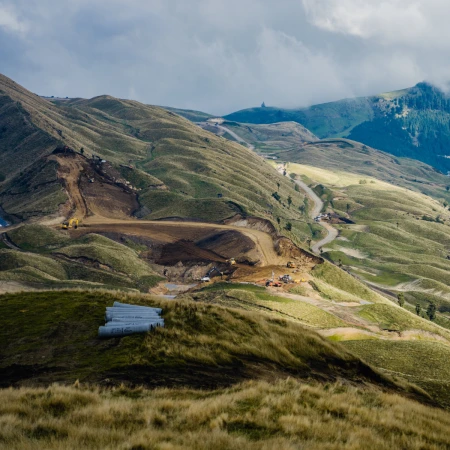
Helping New Zealand get to net zero by 2050.
The growing electrification of transport, heating and industrial processes (among many other things) will increase demand for electricity and speed our path to a zero carbon future.
We’re committed to playing our part by building seven new renewable energy projects by 2030. These include wind farms in Hawke’s Bay, Wairarapa and Manawatū, an energy park (battery and solar) in Northland and a solar farm northwest of Christchurch.
While we operate some iconic hydro stations, we also recognise that the electricity system is being fundamentally changed by the availability of new technology – things like EVs, home solar, EV chargers that can put stored energy back into the grid and billing systems that can give customers more choice over when they use power.
Meridian is helping customers make the most of these and other new opportunities. It’s all about giving them more value, making this value accessible to more New Zealanders and taking pressure off the electricity system in peak periods or when lake levels are low.
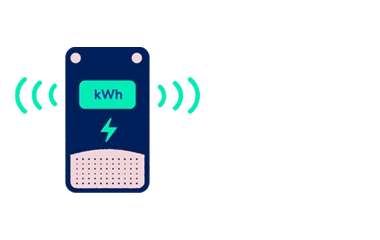
We have agreements in place with large industrial users, such as New Zealand’s Aluminium Smelter and Open Country Dairy, that see Meridian compensate them for reducing their electricity consumption during peak periods or dry years when our hydro storage lakes are low.
As New Zealand to continues to electrify we need to get smarter about when electricity is used. These are great examples of that work in action and the scale of these big industrial operations means a little saving can go a long way for residential customers.

Listed on both the NZX and ASX, Meridian Energy is one of New Zealand’s largest listed companies. Our majority shareholder is the New Zealand Government, owning 51%.
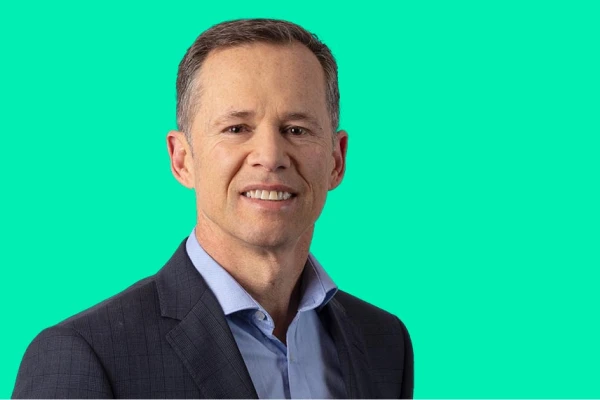
Mike Roan was appointed Chief Executive Officer in July 2025.
Before this appointment, Mike was Chief Financial Officer, responsible for the finance, strategy, risk and procurement functions at Meridian Energy.
Mike joined Meridian in 2006 as a Strategy Analyst before moving into the wholesale side of the business in 2009 as Wholesale Markets Manager. He then became General Manager of Wholesale, where he was responsible for all wholesale market activities.
Before joining Meridian, Mike was based in the United States where he worked in a number of energy trading roles. He is a kiwi who, prior to the US, spent time working within the New Zealand electricity sector and banking.

Mandy joined Meridian as Chief Financial Officer in September 2025. She leads the company’s finance, risk management, and investor relations teams, and is responsible for ensuring Meridian’s financial sustainability as it delivers on its commitment to renewable energy and customer-focused innovation.
Originally from the UK, Mandy has built a career spanning finance, operations and technology across both the UK and New Zealand. She joined Meridian from Z Energy where she was Chief Digital Officer and has previously held CFO roles at the State Services Commission and Fronde Systems. Her earlier career includes senior roles with Deloitte, the London Stock Exchange and NZX.
Mandy holds a Law degree from Cambridge University and is a Chartered Accountant. She is known for her collaborative leadership style and her ability to drive strategic transformation in complex environments. Mandy is passionate about building high-performing teams and contributing to a low-carbon future for Aotearoa.

Tania was appointed GM Generation in December 2021, having originally joined Meridian as Chief People Officer in 2019. Tania has strong experience in the electricity sector, including six years on the Leadership Team of Contact Energy in People and Health, Safety & Environment.
Tania also has a breadth of experience to share from running her own consulting business, leading people-related projects in the energy, science and research, manufacturing, retail, arts, financial services, non-profit and government sectors. A graduate of Victoria University, Tania started her career in the NZ Air Force.

Lisa Hannifin was appointed as Chief Customer Officer in November 2019. As General Manager of Meridian’s retail business, Lisa's role includes accountability for the Meridian and Powershop customer brands and the operational retail functions of the Meridian Group.
She brings rich experience and insight from a number of customer roles in her career, including a decade in the New Zealand electricity market.
During this time Lisa led the Sales and Service teams for Meridian as Head of Business and Residential, where she developed her ability to think laterally, create and implement strategy, and drive transformational change.
Lisa holds a Bachelor of Commerce and Management from Lincoln University.
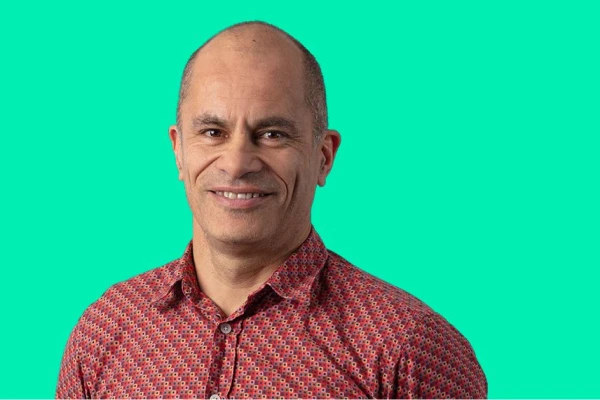
Guy Waipara (Rongowhakaata) was appointed to General Manager of Development in December 2020. This includes managing environmental authorisations for current and future projects, and responsibility of Meridian's future renewable options and projects.
Guy has previously held roles as GM Generation and Natural Resources from November 2017, GM Markets and Production from April 2016, and GM External Relations from August 2010. Guy has held roles at Meridian in offshore business development and setting company stategy. He has over 30 years' experience in the electricity sector and previously worked at Transpower New Zealand in roles responsible for transmission planning and network development.

Jason was appointed Chief People Officer in March 2022. During his tenure at Meridian, he has occupied a variety of senior and executive roles, most recently as CEO of Meridian Australia and Powershop Australia.
Prior to this, he was General Manager of the Office of Chief Executive, as well as General Counsel and Company Secretary.
Jason is a superb leader with considerable experience and a strong passion for Meridian. He is also a director of Meridian subsidiary, Dam Safety Intelligence Limited.

General Manager Corporate Affairs and Sustainability
Claire Shaw was appointed GM Corporate Affairs and Sustainability in April 2020. Claire and her team are responsible for public relations strategy, sustainability, external and internal communications at Meridian Energy. Before this appointment, Claire was Acting GM for Office of the Chief Executive, Corporate Communications Manager and held various communications roles at Meridian. Claire has also been a board member for Drive Electric.
Claire joined Meridian in 2009 after moving from a career in journalism in the UK and Ireland. Originally from Yorkshire, Claire holds an Honours degree in English Literature from the University of Wales, Bangor.

Bharat Ratanpal was appointed Chief Information Officer in March 2022. He has led Meridian's IT function since 2018. Bharat's appointment to the Executive team acknowledges the strategic importance of digital transformation to our business. Bharat has a wealth of experience with previous roles as Head of Technology at Education Payroll, and 15 years at Vodafone New Zealand and its predecessor Telstra Clear. He not only has a wealth of expertise, he has demonstrated his ability to lead, partner and enable others to put customers at the heart of our business through our digital programme. Bharat holds an MBA from Massey University, New Zealand and a Bachelor of Engineering from Pune University, India. Bharat and his team are responsible for the information and communication platforms, tools and technologies that support Meridian's operations, as well as Meridian’s cyber security strategy and programme.

Jason Woolley was appointed General Counsel and Company Secretary in April 2020. Jason and his team are responsible for legal, government relations and regulatory functions at Meridian Energy. Jason joined the Meridian legal team in 2011 as Senior Legal Counsel before taking up the Regulatory Affairs Manager's role and more recently Head of Affairs and Corporate Legal.
Prior to joining Meridian, Jason worked in both private law firm and in-house legal roles in Wellington, the UK and Australia. Jason holds both a Bachelor of Commerce and Administration and a Bachelor of Laws with Honours from Victoria University of Wellington.

Rory Blundell was appointed GM, Strategy and Portfolio in June 2025. Previously Meridian’s Group Strategy Manager, Rory and his team are responsible for the core strategic and portfolio elements of our business. He brings over 20 years of New Zealand electricity sector experience, having previously held numerous senior and executive management positions at the Electricity Authority and Contact Energy. Rory holds degrees in Economics and Engineering (First Class Honours), both from Auckland University.

Mark Verbiest joined the Meridian Board in March 2017, he was appointed Chair in October 2019. He serves on the Audit and Risk Committee and the People, Remuneration and Culture Committee.
Mark is an experienced company director, currently also serving as the Chair of Summerset Group Holdings Limited, and as a director of ASB Bank Limited (effective 1 October 2025). He is also currently a member of the Fonterra Independent Assessment Panel, and a member of the Chapter Zero NZ Steering Committee. Mark was a senior corporate partner of national law firm Simpson Grierson for a number of years before joining the senior executive team at Telecom NZ. Aside from being Group General Counsel and leading a number of corporate groups at Telecom, he was also executive lead for the International and cable, and Yellow Pages businesses. Mark is also a former Chair of Freightways Limited, Spark New Zealand Limited, Willis Bond Capital Limited and Transpower New Zealand Limited. He is a former director for ANZ Bank New Zealand Limited and a former board member of the Financial Markets Authority and of the Advisory Board to New Zealand Treasury as well as having held other board roles.
Mark has had significant involvement and experience in the energy and technology sectors, as well as capital markets, in a variety of roles, over many years.
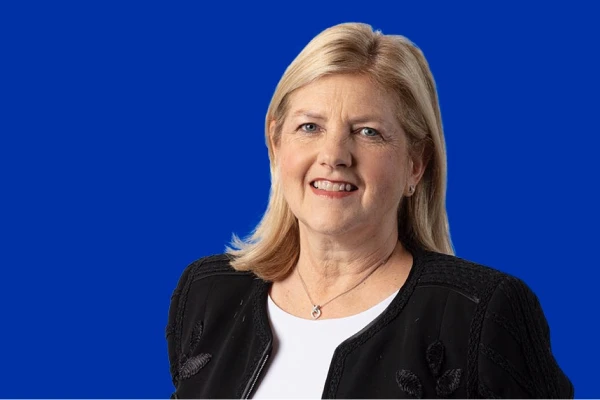
Julia Hoare joined the Meridian board in September 2019. Julia is Chair of the Audit and Risk Committee.
Julia has extensive governance, financial, and commercial expertise. She has a very strong governance pedigree and is currently, Chair of Port of Tauranga and Chair of Auckland International Airport. She is also a member of the Chapter Zero New Zealand Steering Committee. During her executive career, Julia was a partner at PwC for two decades where she gained significant sustainability, financial and tax experience.
In addition to significant commercial and financial experience in both the private and public sectors, Julia’s skills also span infrastructure, logistics, utilities, and sustainable business practices.

Michelle joined the Meridian board in October 2019. Michelle serves on the Safety and Sustainability Committee and the Audit and Risk Committee.
She has extensive engineering and industrial expertise, with more than 20 years of experience in the Australasian heavy industry sector. Michelle is currently on the board on Cycling New Zealand Incorporated and South Port NZ Limited.
Michelle is a former executive of Rio Tinto, both in New Zealand and Australia. She previously held the role of Chief Operating Officer of PowerNet, an electricity distribution company. Michelle has experience in health and safety, infrastructure and risk management. She is currently studying a Masters in Information Governance at the University of Auckland.

Nagaja Sanatkumar joined the Meridian Board in January 2020. Nagaja is Chair of the Safety and Sustainability Committee and serves on the People, Remuneration and Culture Committee. She is also Chair of the Cyber Security Committee.
She has an impressive international career with a focus on software information technology at scale, including senior roles at Amazon and Expedia. She has led digital information technology solutions, and customer experience innovation for eCommerce retail, travel and financial services products, including initiatives and processes to ensure information security, fraud protection and customer data privacy compliance. Nagaja led the establishment of the board’s Cyber Security Committee, which governs initiatives to prevent, assure, and protect Meridian against the threats of cyber-attacks and loss of critical data.
Nagaja studied Chemical Engineering at IIT Bombay before moving to the US for a consulting role with Deloitte. Nagaja completed her MBA from the University of Washington in 2003 and completed a Masters in Sustainable Development Goals from Massey University in 2023.
Nagaja has over 25 years’ global executive and leadership experience. She is also a Director for ANZ Bank New Zealand Limited, Southern Cross Healthcare Limited, Southern Cross Medical Care Society and Tuatahi First Fibre Limited.

Tania joined the Meridian Board in August 2021. Tania is Chair of the People, Remuneration and Culture Committee and also serves on the Safety and Sustainability Committee. Tania is currently a director at Auckland International Airport Limited and Waste Management NZ Limited. Tania is also the Chair of the Waitangi National Trust.
Tania has extensive experience in corporate governance, policy development and business having served as a director of Mighty River Power Limited for 13 years from 2001. She also holds the distinction of being the first Māori director on the Reserve Bank of New Zealand Board where she was the Deputy Chair.

Graham Cockroft joined the Meridian Board in July 2022. He serves on the Audit and Risk Committee, the People, Remuneration and Culture Committee and the Cyber Security Committee.
Graham has over 30 years’ experience in the international energy industry, with executive roles in the UK, South America, New Zealand and Asia. His experiences have been across the energy chain and under different political, economic and regulatory regimes. He has a strong financial background and extensive experience in strategy and business development.
During his executive career Graham served as Group CFO at SGX-listed Sembcorp Industries Limited, Singapore, CFO and COO at Contact Energy Limited, New Zealand, and in various senior executive roles for close to two decades at the UK energy company BG Group (now part of Shell plc), primarily in the UK and South America. Graham is currently a director of ASX-listed AGL Energy Limited and Tuatahi First Fibre Limited.
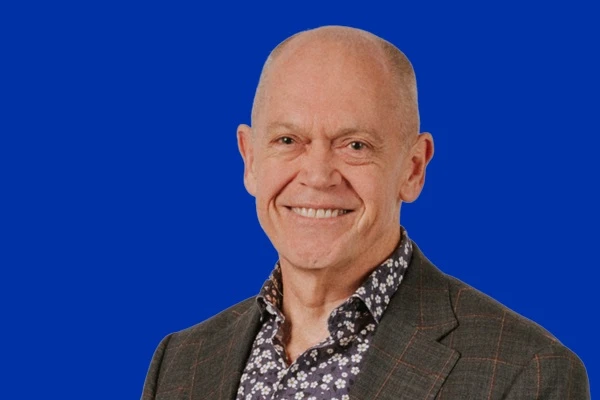
David Carter joined the Meridian Board in July 2023 and serves on the Safety and Sustainability Committee and the Cyber Security Committee.
David has been with the Beca group of companies for 30 plus years during which time he has held a wide range of people, project and governance positions within the group. Since 2017 David has served as Beca Group’s Executive Chair.
A civil engineer by profession, David has worked across a range of sectors within New Zealand and offshore, from airports to ports, and wastewater treatment plants to heavy duty pavements. Such projects include remediation of the Larona hydro canal and foundations for various high rise structures. Delivery mechanisms have ranged from conventional design and construct to design build, culminating in the $3 plus billion Victorian (Australia) Desalination plant as a board member of the design JV.
David currently serves as a Guardian of the Aotearoa Circle and Chairs The University of Auckland Foundation.
To deliver on our purpose of 'clean energy for a fairer and healthier world', Meridian's strategy is built on an all-encompassing focus on climate action. You can find out more about our business priorities and what we aim to achieve in the future in our Strategy Map.
Meridian employs around 1,000 people across the country. Each and every one of them is key to our success. That’s why we do everything we can to attract and grow a diverse and talented team who put climate action, customers and communities at the heart of everything they do.
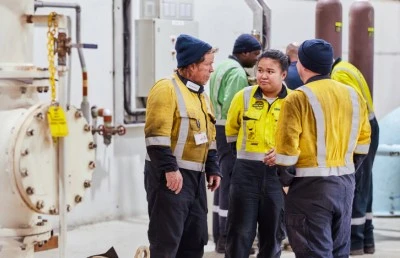
At Meridian, we value people. And not just some people – all people. We embrace different ways of thinking, living and working, because we believe diversity benefits us all. It makes our capabilities even stronger. So no matter who you are, you’ll find that Meridian offers a great place to work.

We are committed to the safety, health, and wellbeing of everyone who works with us. Achieving world-class outcomes requires exemplary leadership and the seamless integration of health, safety, and wellbeing practices into every facet of our operations.
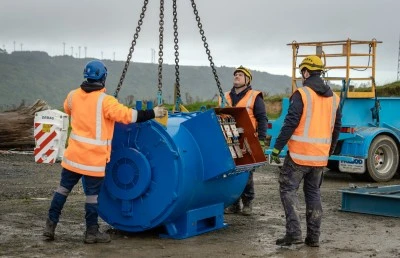
Tackling Zero is Meridian’s quarterly newsletter for people whose roles or studies are focused on sustainability, or for whom this is an area of interest. Each issue will offer Meridian’s insights into a topical sustainability issue, as well as stories on how we, our customers and supply chain partners are tackling sustainability. It also includes links to recent Meridian disclosures such as new policies and reports.